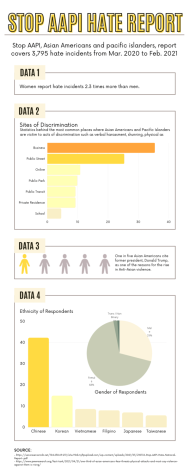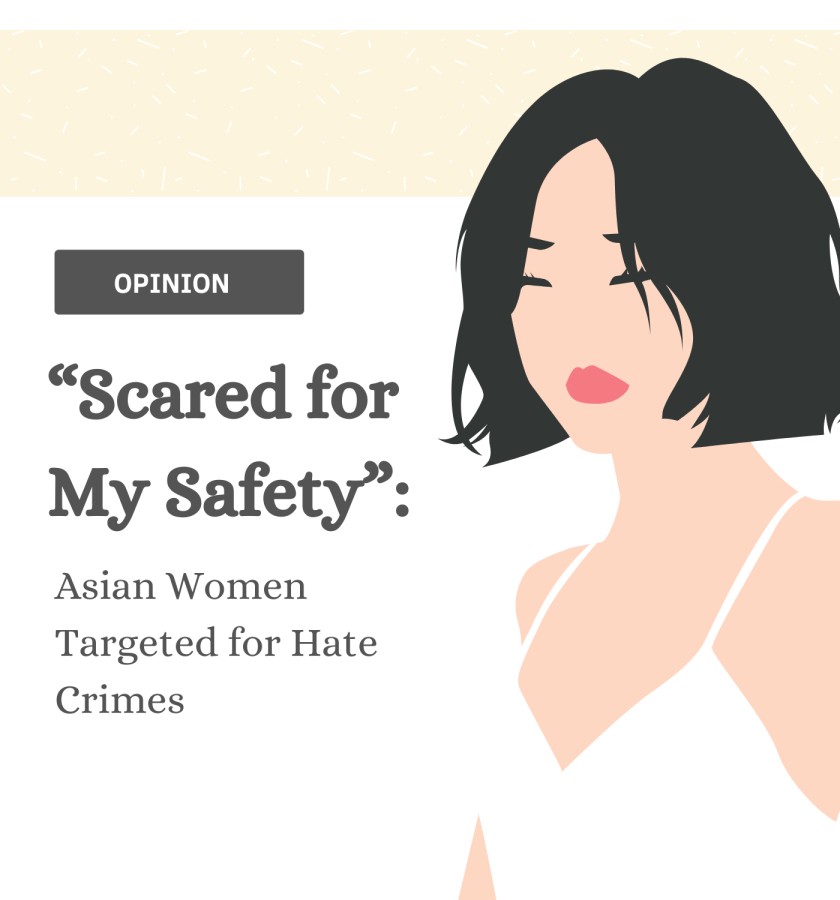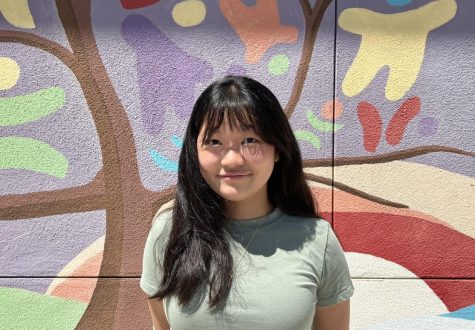“Scared for My Safety”: Asian Women Targeted for Hate Crimes
Asian women are becoming the prime victims in anti-Asian hate crimes as they’re viewed as an easier target for attacks.
May 26, 2022
Following Michelle Go and Christina Yuna Lee’s deaths in New York City, the fear of becoming a target of xenophobia for Asian women is rising by leaps and bounds. These recent attacks have only renewed the panic among Asians that predates COVID-19, but had been the fuel to a dramatic increase in anti-Asian racism.
Now, towards the end of Asian American and Pacific Islander Heritage Month, we must look again at hate crimes. Asian women and elders have been the predominant victims of xenophobia induced brutal attacks and through time these aggravated assaults toward the people of color have gradually escalating past verbal assault to now murder.
“Unnoticed, unreported…normalized”
Xenophobia towards Asian women specifically was spotlighted in the Atlanta Spa Shooting that brought to light the severity of the growing anti-Asian sentiment. Eight Asian women died in the shooting spree across three spas and massage parlors, and despite the shooter’s sentence to life without parole, the panic has been planted inside the hearts of many Asian women across the country.
“As a young Asian-American and seeing all the targeted Asian women in the media, I not only feel scared for my safety in the “real world”, but I also wonder how many of those same hate crimes go unnoticed, unreported, and how many of them are normalized. I feel as If the media doesn’t report these attacks as much as it should, and the federal government doesn’t seem to place these issues as a top priority, creating an even larger issue for the safety of Asian-American women all over the country. Yet, at the same time, I do realize that there are definitely different minority issues that should be spotlighted…but I wish the Asian voice can be amplified and empowered just as much as the other minority groups,” said Emily Yang (‘22), an officer of Tri-Valley Dear Asian Youth.
According to the FBI Hate Crime Report, Anti-Asian hate crimes have seen an increase of more than 73% in 2020. And the research made by Stop AAPI Hate, a national coalition and reporting forum for anti-Asian hate, revealed that amongst the 3,800 anti-Asian hate incidents between March 2020 and March 2021, 68% of the cases were reported by women. And another compilation published by the Center for the Study of Hate and Extremism reported a 339% increase in anti-Asian hate crimes from 2020 to 2021.
“It’s terrifying to see that Asian women are being targeted just because of their ethnicity. It should be obvious that hate crimes are disgusting, and the shocking 300% increase of anti-Asian hate crimes needs attention and people need to stay educated on the Asian-American experience,” said Priscilla Kang (‘23), President of AVHS Korean Club.
Attacks ranged from verbal harassment, shunning, physical assault, civil rights violation, and online harassment as well. While some could argue for the lack of evidence for these attacks—directed towards elders or Asian women like Michelle Go and Christina Yuna Lee—to be labeled as hate crimes, it is almost impossible to not link the rising anti-Asian sentiment to these attacks against these Asian victims.
“Ever since the start of the pandemic and the rise in Asian hate crimes, I feel less and less safe in America every single day out of fear that someone I know or even myself will be attacked. It seems as if there is a lot of tension between the different minorities because of the many issues we face, and these attacks on Asians that oftentimes are minority-on-minority make it seem as if the tensions are growing stronger and more stereotypes are being perpetuated,” said Yang (22’).
“Myself…in the faces of the victims”

All women in society were forced to develop a higher degree of awareness to protect themselves from all forms of harassment. And the “onset of the pandemic” that brought factors such as financial struggles, layoffs, and isolation only heightened the recurring attacks against Asians. Sadly, Asian women were viewed as easier victims of Asian hate crimes and incidents alike, and these occurrences shouldn’t only come to our attention when a comrade of the Asian community has fallen.
“I felt that the initial xenophobia against Asians was definitely unjustified and lacked the proper media coverage it needed. The only way I myself was able to hear about the issues was through videos and articles on social media platforms such as Instagram, not by watching or reading daily news outlets,” said Yang (22’).
There were some efforts by the government that included the COVID-19 Hate Crimes Act, an act that monitors COVID-19 hate crimes via a designated officer and aims to establish online hate crime reporting processes of hotlines across the U.S., that Biden signed into action near the end of May 2021. While it is a step in the right direction, more needs to be done to address the underlying racism in America.
“When the initial explosion of xenophobia happened, it definitely scared me. I see myself and my family in the faces of the victims and it scares me trying to go to places like Chinatown that hold many childhood memories. It’s difficult to tackle things such as Asian hate crimes because of how deeply racism is embedded in American culture. It’s enraging to see how slowly progress is being made while you hear tragedy after tragedy on the news,” said Katelyn Ma, Chinese-American and Co-Founder of Purple Koi Project (23’).
Christina Lee, a 35 years old Korean American, was brutally stabbed to death in her own apartment amidst a spike in Anti-Asian attacks in New York City. Yet it was not reported as it was— ”simply a racially motivated act”. America needs to expand its protection of the civil rights of the Asian-American community and restore faith in justice that had dwindled within the heart of Asians in the U.S. during the world ravaging COVID-19 pandemic.
“This issue of xenophobia definitely hasn’t just popped out of nowhere since the beginning of the pandemic – it’s been around ever since the beginning of the immigration act that created a quota on Chinese immigrants, and the pandemic only really highlighted those incidents into the public. By educating others, listening to their experiences, staying safe, looking out for your loved ones, I believe that we will definitely get one step closer to keeping our Asian communities safe,” said Yang (22’).





